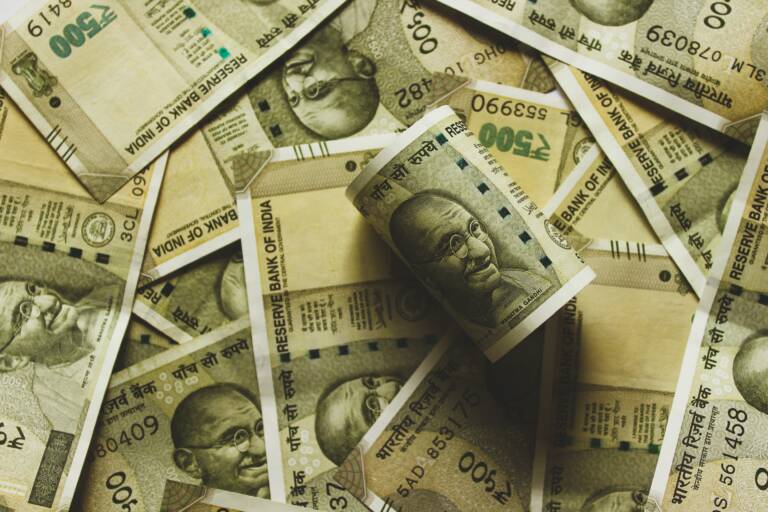Goods payments: goodbye Dollar, welcome Yuan and Rupee

The fact that Western countries, led by the USA, are increasingly protectionist and are reducing their weight on trade is damaging the status of the dollar as a reference currency in trade, while its function in finance remains important. The US is no longer an importer of oil from the Gulf, or at least, so it is obvious that the Arab countries of the area have no interest in using the USD. The EU has as its objective the decrease in the use of fossil fuels, as well as setting import duties through the CBAM. So these currencies are bound to become secondary on the international commodity market.
This also leads to a loss of international political weight. as evidenced by the cut in OPEC quotas and the consequent inflationary push in the USA and the EU.
Meanwhile, the US moves with sanctions against Chinese industry, as happened on chips and as happens on software, while the EU asks to reduce the risk of supply chains towards China, and China warns them not to do so, because it will damage bilateral relations. All of this hurts both the USD and the Euro.
Gillian Tett of the Financial Times says, “ Prepare for a multipolar currency world ,” noting CEPR's view that: “ the renminbi may play a larger role in the future, even in the absence of full financial liberalization. This process would involve billing and trade settlements, central bank swap lines and offshore renminbi markets. This would not lead to the renminbi overtaking the dollar, but rather to a multipolar world of key currencies, including the dollar, the euro and the renminbi .”
Meanwhile, India and Malaysia have agreed to regulate trade in INR, Indian Rupees, placing another important industrial player on international markets, including currency.
This paper has previously said that changes in trade billing could be important to the global financial architecture; and yet that there is no “Bretton Woods 3” system that replaces the US dollar, as IMF data points out that it is the best and energy expert Anas Alhajii argues that there is no global alternative to it for oil. There is no contradiction because if the dollar falls, it will not be replaced by a global system, but by a market explosion.
The FT is right: some commodity producers are now offered payment in CNY, not USD anymore. They are not accepting it yet due to technical difficulties, but they are talking about it. Yes, the CNY is useless internationally because it has no open capital account; but, as the CEPR notes, what if the PBOC offered swap lines of CNH to central banks for trade finance, filling this gap? Of course, the CNY does not offer assets like US Treasuries; but a commodity exporter is not a central bank and just wants to be paid in a currency that has value and allows you to buy goods. Which the CNY allows perfectly.
As commodity producers in emerging markets tend to be hubs of the broader economy, if this occurs, real trade flows could be redirected even more towards China and the prices of some commodities move more towards the CNY .
This is not good for the CNY: trade math says we don't need more CNY globally yet even if that happens – but that's beside the point. The point is physical supply chains and geopolitics.
As long as the US runs huge trade deficits, that won't decouple them from China, which is why it's not possible to have a global Bretton Woods 3 system: but the goal here is a levee for a future Russian-style crisis. Which, ironically, could be how one of them will unleash, if you think like Graham Allison.
For other emerging economies, local foreign exchange settlement begins to deepen bilateral trade relationships and corresponding asset holdings, even as it further unravels the broader global system. It can also mean de facto bartering with dollar prices as a buffer against exchange rate volatility, as many markets struggle with a soaring dollar and outright dollar shortages, with no swap lines ever offered by the Fed. The fact that some are willing to roll trade back to the prehistory wrongly taught in all economics textbooks – read Graeber or Polanyi and you will see that debt came first, not barter – should worry Western markets much more.
Paradoxically, the abandonment of the dollar as the reference currency in the raw materials market, beyond the specific case of some easily assessable energy raw materials, could make purchasing convenience decisions more complex, if not even lead to a bifurcation of prices depending on the currency used. A move that would confuse the logistics chains and that would not be appreciated by Chinese industrial companies.

Thanks to our Telegram channel you can stay updated on the publication of new articles from Economic Scenarios.
The article Goods Payments: Goodbye Dollar, Welcome Yuan and Rupee comes from Scenari Economics .
This is a machine translation of a post published on Scenari Economici at the URL https://scenarieconomici.it/pagamenti-merci-addio-dollaro-benvenuti-yuan-e-rupia/ on Tue, 04 Apr 2023 17:17:00 +0000.
